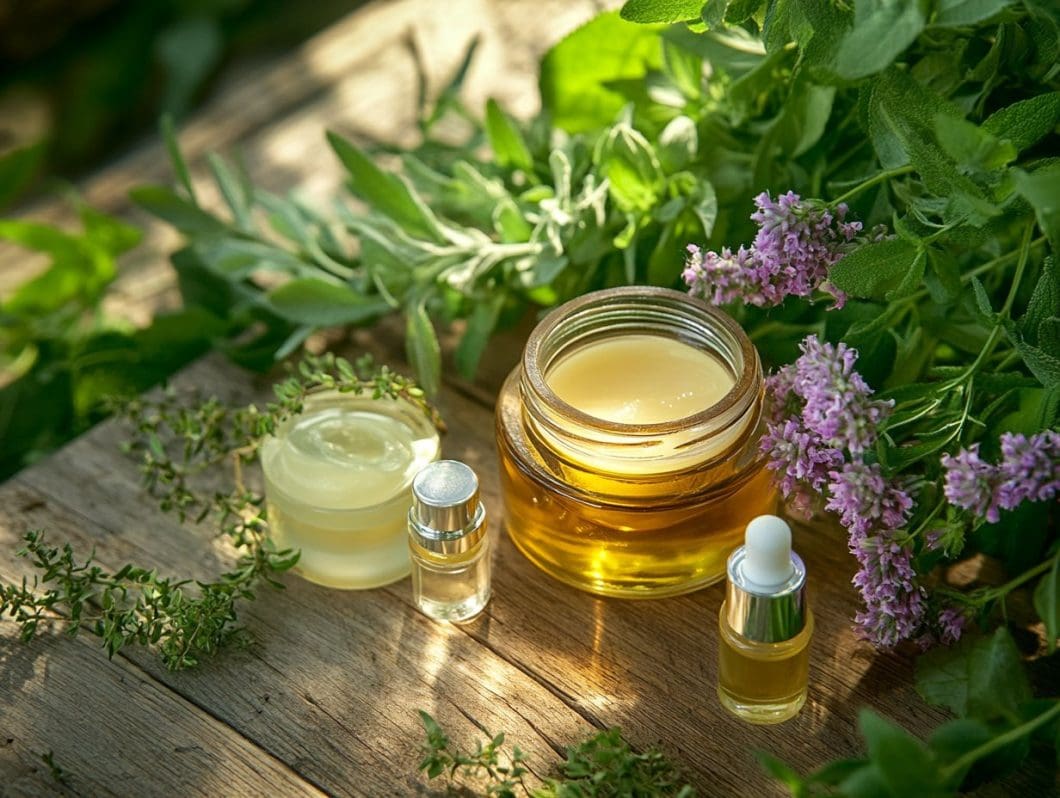In a world increasingly focused on health and sustainability, organic beauty products are gaining popularity as a go-to choice for skincare and cosmetics.
But what qualifies as organic or natural?
Table of Contents
This article unpacks the definition, explores the numerous benefits these products offer for both skin and the environment, and provides practical tips on how to select the right items for your routine.
- From top recommended brands to a smooth transition into organic beauty, you’ll find everything you need to make an informed change.
Join us as we explore the vibrant world of organic beauty products worth the investment.
Key Takeaways:
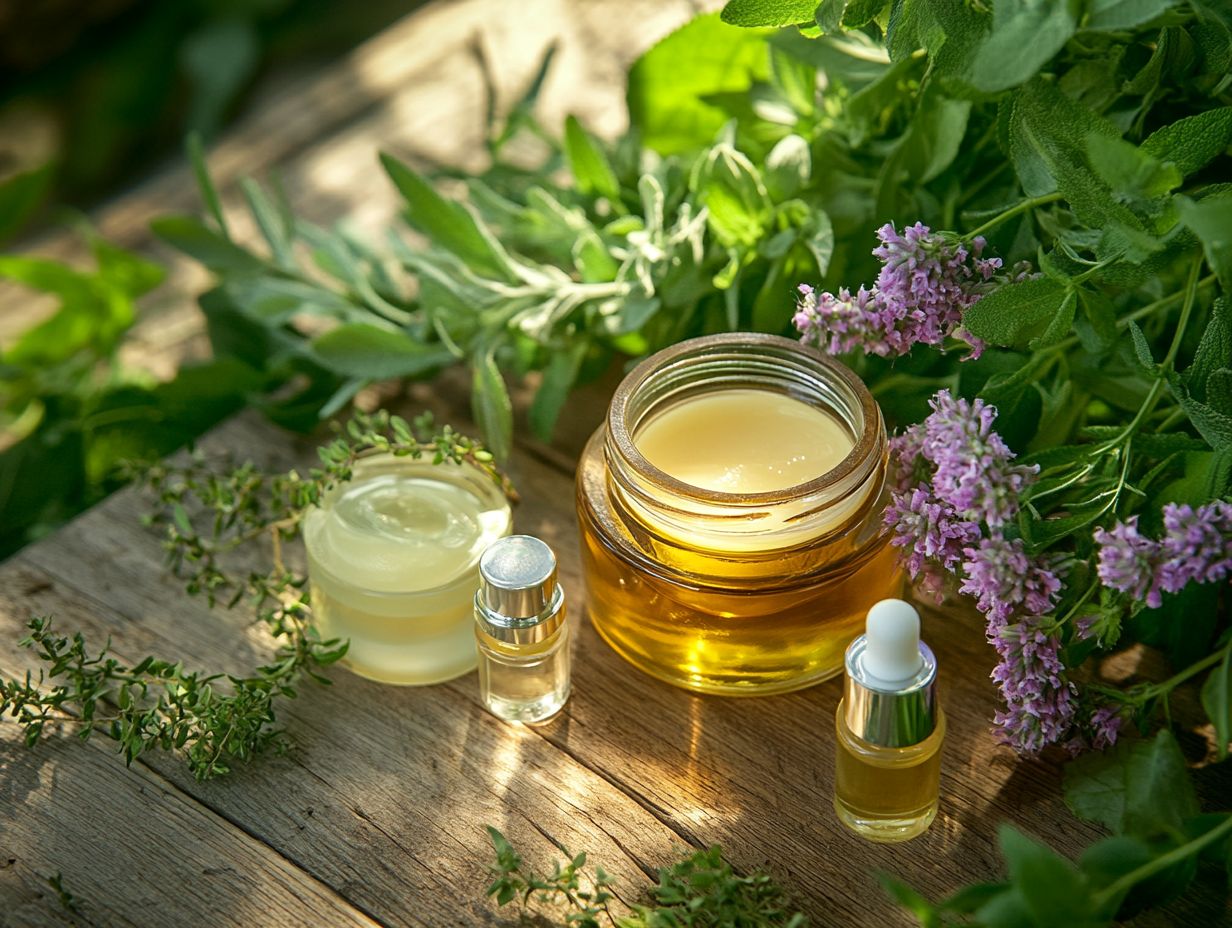
- Investing in organic beauty products can benefit your skin’s health and have a positive impact on the environment.
- Reading labels and understanding ingredients is crucial when choosing organic beauty products.
- Transitioning to an organic beauty routine may be intimidating, but with the right tips and recommended brands, it can be a smooth process.
What are Organic Beauty Products?
Organic beauty products encompass skincare items formulated from natural ingredients cultivated without the application of harmful chemicals. This approach not only promotes skin health but also aligns with environmentally sustainable practices.
Consumers increasingly favor these products as they prioritize clean beauty and seek alternatives to non-organic options, which may contain synthetic components that could potentially cause skin irritation or allergic reactions.
Defining Organic and Natural Products
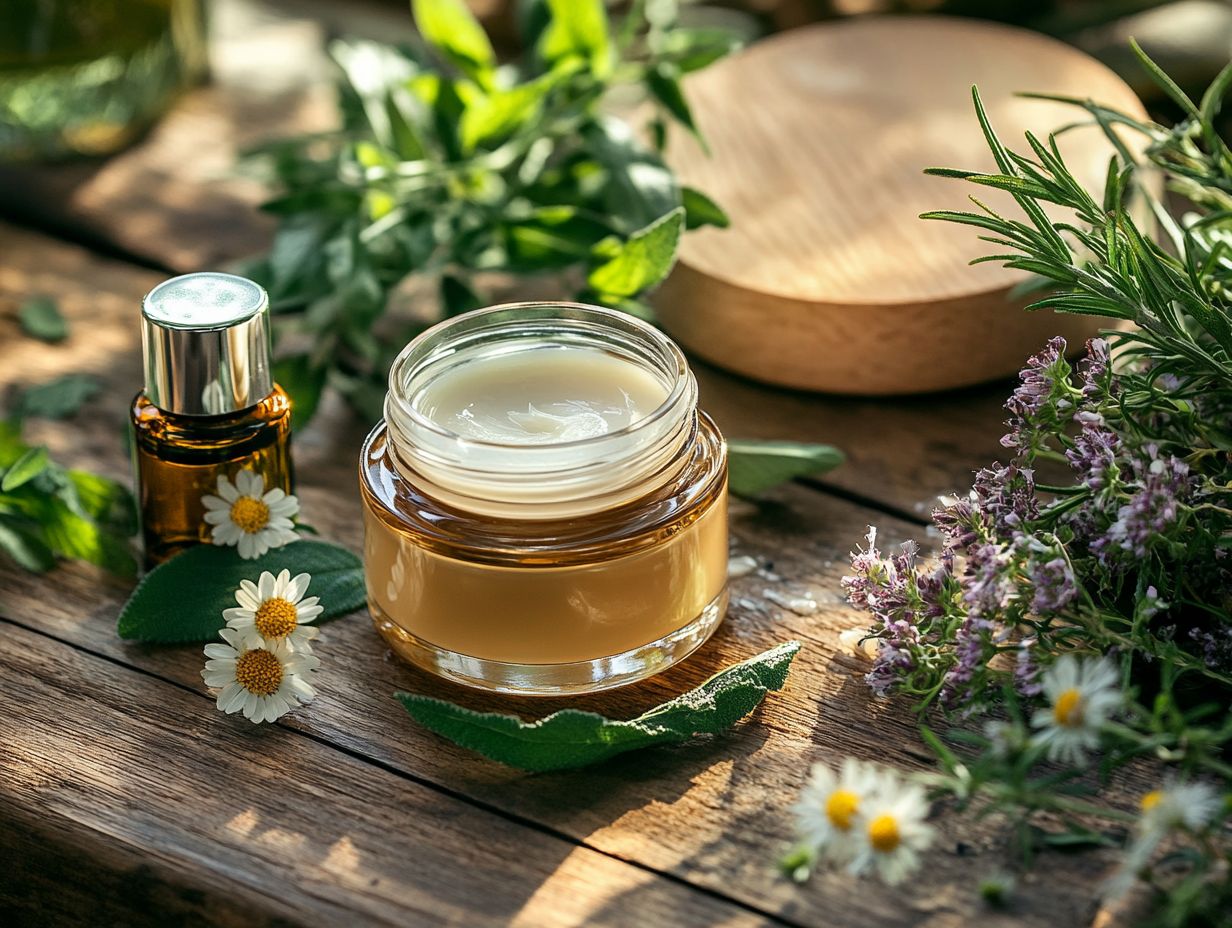
Organic and natural products are characterized by their reliance on plant extracts and nourishing ingredients that promote skin health without the use of synthetic substances or harmful chemicals.
These products emphasize ingredient transparency, ensuring consumers are well-informed about the constituents they apply to their skin. For instance, organic certifications such as USDA Organic and Ecocert verify that ingredients are cultivated without harmful pesticides and comply with stringent guidelines.
By selecting these products, individuals can experience not only enhanced skin nourishment but also the assurance of avoiding parabens, sulfates, and other synthetic additives.
This informed choice contributes to overall health, as the skin’s ability to absorb beneficial nutrients is improved by the purity of the ingredients, resulting in a more radiant complexion and enhanced skin vitality.
Benefits of Using Organic Beauty Products
The advantages of utilizing organic beauty products encompass not only individual skin health but also yield significant benefits for the environment. By reducing the reliance on harmful chemicals and advocating for sustainable practices within the beauty industry, organic products foster a more eco-friendly approach to beauty care.
Improved Skin Health and Environmental Impact
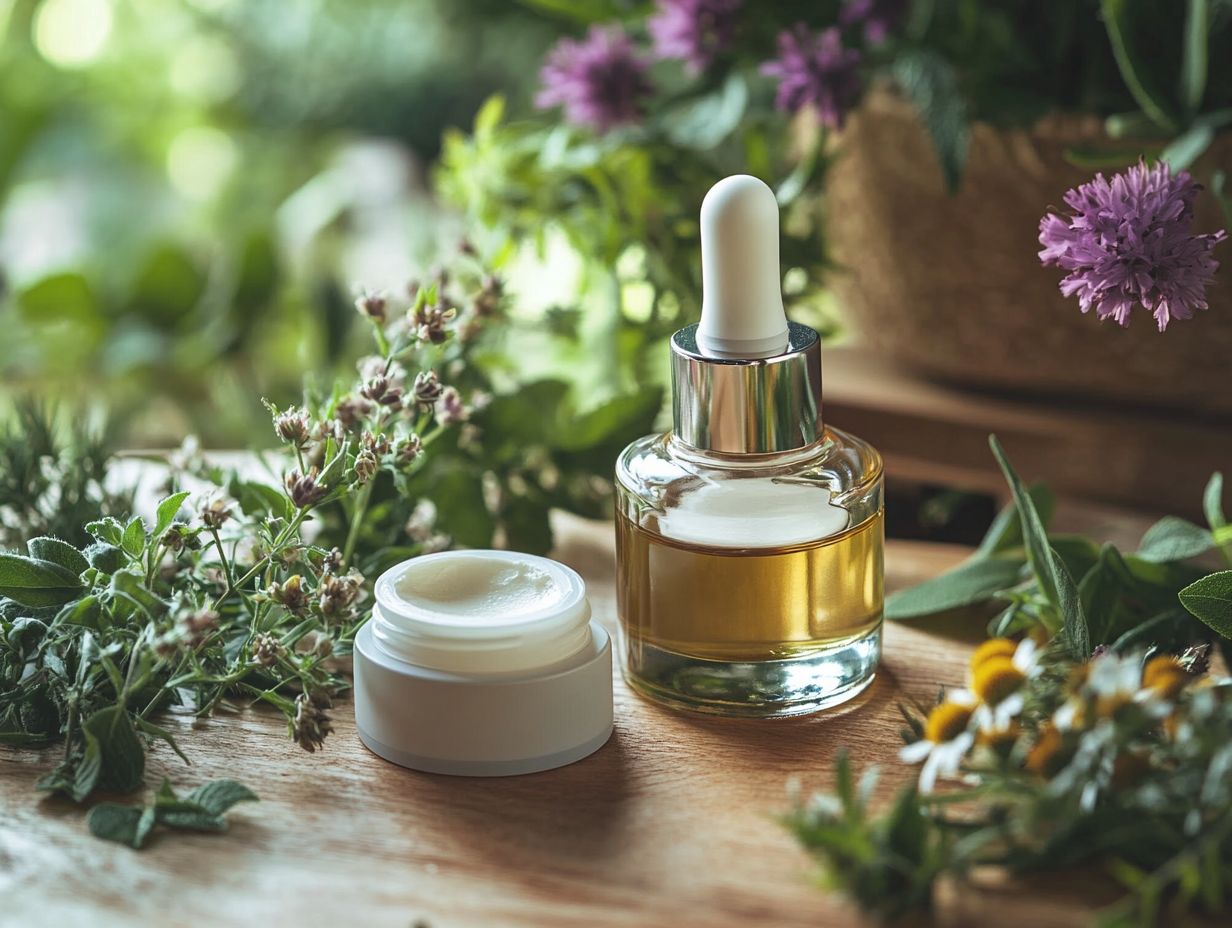
Utilizing organic skincare products can significantly enhance skin health by delivering essential vitamins and active ingredients that foster natural beauty while minimizing the environmental impact associated with non-organic alternatives.
These products typically contain nourishing ingredients sourced from plants that are cultivated without harmful pesticides or synthetic fertilizers. By choosing organic solutions, individuals not only improve their skin through the pure offerings of nature but also contribute to a healthier planet.
Organic farming practices emphasize biodiversity and promote soil health, ensuring that ecosystems remain vibrant and resilient. This sustainable approach aids in preserving waterways and reducing pollution, resulting in a cleaner environment.
Thus, the selection of organic skincare represents a dual benefit: enhancing skin health while protecting the Earth for future generations.
How to Choose the Right Organic Beauty Products
Selecting appropriate organic beauty products necessitates a thorough understanding of ingredient labels and a commitment to making health-conscious choices that align with individual needs and skincare routines.
Reading Labels and Understanding Ingredients
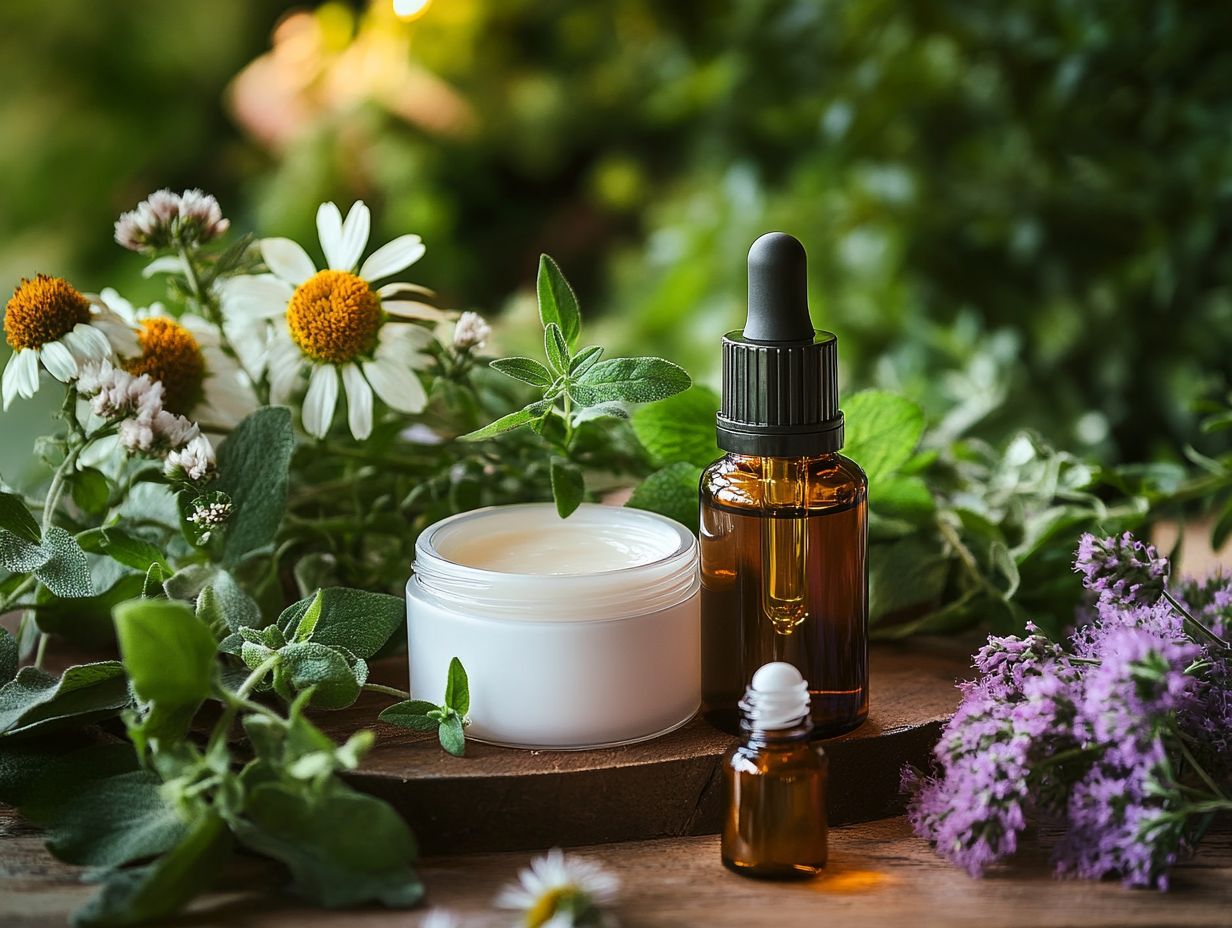
Reading labels and understanding ingredients is essential for consumers seeking clean beauty options, as it allows them to identify organic certifications and ensure transparency regarding the ingredients in the products they select.
By carefully scrutinizing ingredient labels, individuals can more effectively differentiate between safe and harmful substances, leading to more informed purchasing decisions.
Common chemicals to avoid include:
- Parabens
- Sulfates
- Synthetic fragrances
These substances can have detrimental effects on both health and the environment. Organic certifications serve as a reliable indicator, signifying that products are sourced from natural origins without the use of harmful pesticides or genetically modified organisms.
This heightened awareness not only enables consumers but also promotes a healthier lifestyle, emphasizing personal well-being and ecological responsibility through mindful consumption.
Top Organic Beauty Products on the Market
The beauty industry has experienced a notable increase in the popularity of organic skincare brands, which provide effective products tailored to address a wide range of skincare requirements while upholding cruelty-free standards.
Recommended Brands and Products
Some of the most highly recommended organic skincare brands include True Botanicals, cocokind, Herbivore Botanicals, OSEA, Ursa Major, among others, all of which prioritize the use of natural ingredients to maximize skin health benefits.
Each of these brands offers a distinct approach to skincare, distinguishing themselves in a competitive market. For instance, True Botanicals emphasizes scientifically-backed formulations that are both effective and environmentally sustainable. Their Renew Pure Radiance Oil is particularly esteemed for its hydrating properties and its ability to enhance skin tone.
Conversely, cocokind adopts a minimalist philosophy, providing organic options such as their chlorella serum, which is particularly suitable for sensitive skin types. Herbivore Botanicals harnesses the power of nature in products like their Blue Tansy Resurfacing Clarity Mask, which is well-suited for individuals with oily skin.
OSEA is renowned for its ocean-inspired formulations, notably the Sea Glow Serum, which nourishes the skin while promoting a youthful appearance. Ursa Major effectively combines natural efficacy with modern, sleek packaging, making their Stellar Shave Cream a notable choice for both comfort and aesthetics.
Each brand not only prioritizes the use of pure ingredients but also adheres to cruelty-free principles, appealing to the ethically-conscious consumer.
Making the Switch to Organic Beauty
Transitioning to organic beauty products necessitates a thorough evaluation of one’s skincare regimen and a clear understanding of how to integrate natural beauty practices into daily life in a sustainable manner.
Tips for Transitioning to an Organic Beauty Routine
Transitioning to an organic beauty routine entails exploring natural alternatives tailored to individual needs, while also ensuring comprehensive product testing to ascertain efficacy and compatibility with one’s skin.
Ahead of engaging with organic products, it is crucial to thoroughly assess your skin type and specific concerns, as not all natural options yield the same results. Consistent patch testing of new items is advisable to prevent adverse reactions and to monitor how the skin responds over time.
A thorough understanding of the ingredients and their respective benefits will enable you to make informed decisions regarding the products you choose to integrate into your routine. As you gradually introduce organic alternatives, consider alternating these with your existing products to observe any improvements or sensitivities, thereby establishing a balanced approach that acknowledges your skin’s unique requirements.


